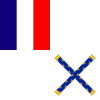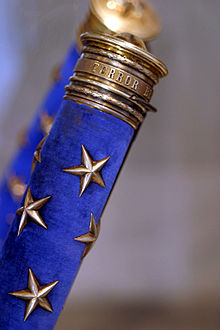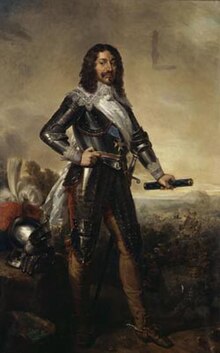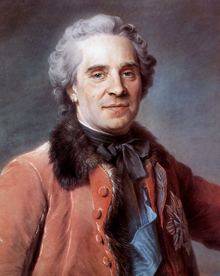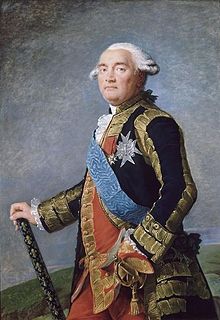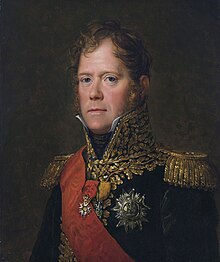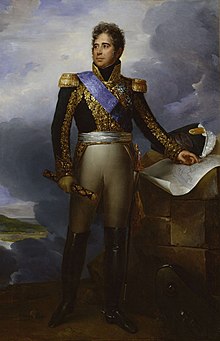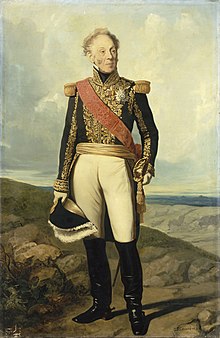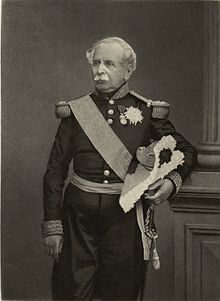J u m p t o c o n t e n t
M a i n m e n u
M a i n m e n u
N a v i g a t i o n
● M a i n p a g e ● C o n t e n t s ● C u r r e n t e v e n t s ● R a n d o m a r t i c l e ● A b o u t W i k i p e d i a ● C o n t a c t u s ● D o n a t e
C o n t r i b u t e
● H e l p ● L e a r n t o e d i t ● C o m m u n i t y p o r t a l ● R e c e n t c h a n g e s ● U p l o a d f i l e
S e a r c h
Search
A p p e a r a n c e
● C r e a t e a c c o u n t ● L o g i n
P e r s o n a l t o o l s
● C r e a t e a c c o u n t ● L o g i n
P a g e s f o r l o g g e d o u t e d i t o r s l e a r n m o r e ● C o n t r i b u t i o n s ● T a l k
( T o p )
1 H i s t o r y
2 D i r e c t C a p e t i a n s
T o g g l e D i r e c t C a p e t i a n s s u b s e c t i o n
2 . 1 P h i l i p I I , 1 1 8 0 – 1 2 2 3
2 . 2 L o u i s I X , 1 2 2 6 – 1 2 7 0
2 . 3 P h i l i p I I I , 1 2 7 0 – 1 2 8 5
2 . 4 P h i l i p I V , 1 2 8 5 – 1 3 1 4
2 . 5 L o u i s X , 1 3 1 4 – 1 3 1 6
2 . 6 P h i l i p V , 1 3 1 6 – 1 3 2 2
2 . 7 C h a r l e s I V , 1 3 2 2 – 1 3 2 8
3 V a l o i s
T o g g l e V a l o i s s u b s e c t i o n
3 . 1 P h i l i p V I , 1 3 2 8 – 1 3 5 0
3 . 2 J o h n I I 1 3 5 0 – 1 3 6 4
3 . 3 C h a r l e s V , 1 3 6 4 – 1 3 8 0
3 . 4 C h a r l e s V I , 1 3 8 0 – 1 4 2 2
3 . 5 C h a r l e s V I I , 1 4 2 2 – 1 4 6 1
3 . 6 L o u i s X I , 1 4 6 1 – 1 4 8 3
3 . 7 C h a r l e s V I I I , 1 4 8 3 – 1 4 9 8
4 V a l o i s - O r l é a n s
T o g g l e V a l o i s - O r l é a n s s u b s e c t i o n
4 . 1 L o u i s X I I , 1 4 9 8 – 1 5 1 5
5 V a l o i s - A n g o u l ê m e
T o g g l e V a l o i s - A n g o u l ê m e s u b s e c t i o n
5 . 1 F r a n c i s I 1 5 1 5 – 1 5 4 7
5 . 2 H e n r y I I 1 5 4 7 – 1 5 5 9
5 . 3 F r a n c i s I I 1 5 5 9 – 1 5 6 0
5 . 4 C h a r l e s I X , 1 5 6 0 – 1 5 7 4
5 . 5 H e n r y I I I 1 5 7 4 – 1 5 8 9
6 B o u r b o n s
T o g g l e B o u r b o n s s u b s e c t i o n
6 . 1 H e n r y I V 1 5 8 9 – 1 6 1 0
6 . 2 L o u i s X I I I , 1 6 1 0 – 1 6 4 3
6 . 3 L o u i s X I V , 1 6 4 3 – 1 7 1 5
6 . 4 L o u i s X V , 1 7 1 5 – 1 7 7 4
6 . 5 L o u i s X V I , 1 7 7 4 – 1 7 9 2
7 F i r s t E m p i r e
T o g g l e F i r s t E m p i r e s u b s e c t i o n
7 . 1 N a p o l e o n I , 1 8 0 4 – 1 8 1 4 , 1 8 1 5
8 R e s t o r a t i o n
T o g g l e R e s t o r a t i o n s u b s e c t i o n
8 . 1 L o u i s X V I I I , 1 8 1 5 – 1 8 2 4
8 . 2 C h a r l e s X , 1 8 2 4 – 1 8 3 0
9 J u l y M o n a r c h y
T o g g l e J u l y M o n a r c h y s u b s e c t i o n
9 . 1 L o u i s - P h i l i p p e 1 8 3 0 – 1 8 4 8
10 S e c o n d R e p u b l i c
T o g g l e S e c o n d R e p u b l i c s u b s e c t i o n
1 0 . 1 L o u i s - N a p o l e o n B o n a p a r t e , 1 8 4 8 – 1 8 5 2
11 S e c o n d E m p i r e
T o g g l e S e c o n d E m p i r e s u b s e c t i o n
1 1 . 1 N a p o l e o n I I I , 1 8 5 2 – 1 8 7 0
12 T h i r d R e p u b l i c
T o g g l e T h i r d R e p u b l i c s u b s e c t i o n
1 2 . 1 R a y m o n d P o i n c a r é , 1 9 1 3 – 1 9 2 0
1 2 . 2 A l e x a n d r e M i l l e r a n d , 1 9 2 0 – 1 9 2 4
13 F o u r t h R e p u b l i c
T o g g l e F o u r t h R e p u b l i c s u b s e c t i o n
1 3 . 1 V i n c e n t A u r i o l , 1 9 4 7 – 1 9 5 4
14 F i f t h R e p u b l i c
T o g g l e F i f t h R e p u b l i c s u b s e c t i o n
1 4 . 1 F r a n ç o i s M i t t e r r a n d , 1 9 8 1 – 1 9 9 5
15 R e f u s e d
16 S e e a l s o
17 N o t e s
18 R e f e r e n c e s
T o g g l e t h e t a b l e o f c o n t e n t s
M a r s h a l o f F r a n c e
3 6 l a n g u a g e s
● ا ل ع ر ب ي ة ● C a t a l à ● Č e š t i n a ● D a n s k ● D e u t s c h ● E e s t i ● Ε λ λ η ν ι κ ά ● E s p a ñ o l ● E s p e r a n t o ● E u s k a r a ● ف ا ر س ی ● F r a n ç a i s ● 한 국 어 ● H r v a t s k i ● Í s l e n s k a ● I t a l i a n o ● ע ב ר י ת ● ქ ა რ თ უ ლ ი ● L i e t u v i ų ● M a g y a r ● B a h a s a M e l a y u ● N e d e r l a n d s ● 日 本 語 ● N o r s k b o k m å l ● O c c i t a n ● P o l s k i ● P o r t u g u ê s ● R o m â n ă ● Р у с с к и й ● S l o v e n š č i n a ● S r p s k o h r v a t s k i / с р п с к о х р в а т с к и ● S u o m i ● S v e n s k a ● У к р а ї н с ь к а ● T i ế n g V i ệ t ● 中 文
E d i t l i n k s
● A r t i c l e ● T a l k
E n g l i s h
● R e a d ● E d i t ● V i e w h i s t o r y
T o o l s
T o o l s
A c t i o n s
● R e a d ● E d i t ● V i e w h i s t o r y
G e n e r a l
● W h a t l i n k s h e r e ● R e l a t e d c h a n g e s ● U p l o a d f i l e ● S p e c i a l p a g e s ● P e r m a n e n t l i n k ● P a g e i n f o r m a t i o n ● C i t e t h i s p a g e ● G e t s h o r t e n e d U R L ● D o w n l o a d Q R c o d e ● W i k i d a t a i t e m
P r i n t / e x p o r t
● D o w n l o a d a s P D F ● P r i n t a b l e v e r s i o n
I n o t h e r p r o j e c t s
● W i k i m e d i a C o m m o n s
A p p e a r a n c e
F r o m W i k i p e d i a , t h e f r e e e n c y c l o p e d i a
Marshal of France (French : Maréchal de France , plural Maréchaux de France military rank , that is awarded to generals for exceptional achievements. The title has been awarded since 1185, though briefly abolished (1793–1804) and for a period dormant (1870–1916). It was one of the Great Officers of the Crown of France during the Ancien Régime Bourbon Restoration , and one of the Grand Dignitaries of the Empire during the First French Empire (when the title was Marshal of the Empire , not Marshal of France).
A Marshal of France displays seven stars on each shoulder strap. A marshal also receives a baton – a blue cylinder with stars, formerly fleurs-de-lis during the monarchy and eagles during the First French Empire. The baton bears the Latin inscription of Terror belli, decus pacis
Between the end of the 16th century and the middle of the 19th century, six Marshals of France were given the even more exalted rank of Marshal General of France : Biron Lesdiguières Turenne Villars Saxe Soult
The distinction of Admiral of France is the equivalent in the French Navy .
Terror belli ...decus pacis Modern-day baton, belonging to one of the four Marshals of France during World War II (Leclerc, de Lattre, Juin, and Kœnig)
History [ edit ]
The title derived from the office of marescallus Franciae created by King Philip II Augustus for Albéric Clément about 1190.
The title was abolished by the National Convention in 1793. It was restored as Marshal of the Empire during the First French Empire by Napoleon . Under the Bourbon Restoration, the title reverted to Marshal of France, and Napoleon III kept that designation.
After the fall of Napoleon III and the Second French Empire , the Third Republic did not use the title until the First World War , when it was recreated as a military distinction and not a rank.
Contrarily to ranks, which are awarded by the army, the distinction of Marshal of France is awarded by a special law voted by the French Parliament . For this reason, it is impossible to demote a Marshal. The most famous case is Philippe Pétain , who was awarded the distinction of Marshal of France for his generalship in World War I, and who was stripped of other positions and titles after his trial for high treason due to his involvement with collaborationist Vichy France : due to the principle of separation of powers , the court that judged him did not have the power to cancel the law that had made him a Marshal in the first place.
The last living Marshal of France was Alphonse Juin , promoted in 1952, who died in 1967. The latest Marshal of France was Marie-Pierre Kœnig , who was made a Marshal posthumously in 1984. Today, the title of Marshal of France can only be granted to a general officer who fought victoriously in war-time.
Direct Capetians [ edit ]
Philip II, 1180–1223 [ edit ]
Albéric Clément , Lord of Le Mez (died 1191), Marshal of France in 1185
Matthew II of Montmorency , Lord of Montmorency and Marly, Marshal of France in 1191
Guillaume de Bournel , (died 1195), Marshal of France in 1192
Nivelon d'Arras (died 1204), Marshal of France in 1202
Henry I Clément , called the "Little Marshal", Lord of Le Mez and of Argentan (1170–1214), Marshal of France in 1204
Jean III Clément , Lord of Le Mez and of Argentan (died 1262), Marshal of France in 1214
Guillaume de la Tournelle (dates unknown), Marshal of France in 1220
Louis IX, 1226–1270 [ edit ]
Ferry Pasté , Lord of Challeranges (died 1247), Marshal of France in 1240
Jean Guillaume de Beaumont (died 1257), Marshal of France in 1250
Henri de Cousances (died 1268), Marshal of France in 1255
Gauthier III , Lord of Nemours (died 1270), Marshal of France in 1257
Henri II Clément , Lord of Le Mez and Argentan (died 1265), Marshal of France in 1262
Héric de Beaujeu (died 1270), Marshal of France in 1265
Renaud de Précigny (died 1270), Marshal of France in 1265
Hugh of Mirepoix, Marshal of France in 1266[1]
Raoul II Sores (died 1282), Marshal of France in 1270
Lancelot de Saint-Maard (died 1278), Marshal of France in 1270
Philip III, 1270–1285 [ edit ]
Philip IV, 1285–1314 [ edit ]
Louis X, 1314–1316 [ edit ]
Philip V, 1316–1322 [ edit ]
Charles IV, 1322–1328 [ edit ]
Philip VI, 1328–1350 [ edit ]
John II 1350–1364 [ edit ]
Charles V, 1364–1380 [ edit ]
Charles VI, 1380–1422 [ edit ]
Jean II Le Meingre (1364–1421), Marshal of France in 1391
Jean II de Rieux , Lord of Rochefort and of Rieux (1342–1417), Marshal of France in 1397
Pierre de Rieux , Lord of Rochefort and of Rieux (1389–1439), Marshal of France in 1417
Claude de Beauvoir, Lord of Chastellux and Viscount of Avallon (1385–1453), Marshal of France in 1418
Jean de Villiers de L'Isle-Adam (1384–1437), Marshal of France in 1418
Jacques de Montberon , Lord of Engoumois (died 1422), Marshal of France in 1418
Gilbert Motier de La Fayette (1396–1464), Marshal of France in 1421
Antoine de Vergy (died 1439), Marshal of France in 1422
Jean de La Baume , Count of Montrevel-en-Bresse (died 1435), Marshal of France in 1422
Charles VII, 1422–1461 [ edit ]
Amaury de Séverac , Lord of Beaucaire and of Chaude-Aigues (died 1427), Marshal of France in 1424
Jean de Brosse , Baron of Boussac and of Sainte-Sévère (1375–1433), Marshal of France in 1426
Gilles de Rais , Lord of Ingrande and of Champtocé (c. 1405 – 1440), Marshal of France in 1429
André de Laval-Montmorency , Lord of Lohéac and of Retz (1408–1486), Marshal of France in 1439
Philippe de Culant , Lord of Jaloignes, of La Croisette, of Saint-Armand and of Chalais (died 1454), Marshal of France in 1441
Jean Poton de Xaintrailles , Seneschal de Limousin (1390–1461), Marshal of France in 1454
Louis XI, 1461–1483 [ edit ]
Charles VIII, 1483–1498 [ edit ]
Valois-Orléans [ edit ]
Louis XII, 1498–1515 [ edit ]
Gian Giacomo Trivulzio , Marquis of Vigevano (1448–1518), Marshal of France in 1499
Charles II d'Amboise , Lord of Chaumont, of Meillan and of Charenton (1473–1511), Marshal of France in 1506
Odet de Foix, Vicomte de Lautrec , Viscount of Lautrec (1485–1528), Marshal of France in 1511
Robert Stewart, Lord of Aubigny , Count of Lennox (1470–1544), Marshal of France in 1514
Valois-Angoulême [ edit ]
Francis I 1515–1547 [ edit ]
Jacques II de Chabannes , Lord of La Palice (died 1525), Marshal of France in 1515
Gaspard I de Coligny , Lord of Châtillon-sur-Loing (died 1522), Marshal of France in 1516
Thomas de Foix-Lescun (died 1525), Marshal of France in 1518
Anne de Montmorency , Duke of Montmorency and Baron of Damville, Count of Beaumont-sur-Oise and of Dammartin, Viscount of Melun, first Baron of France and Grand Master, Constable of France etc. (1492–1567), Marshal of France in 1522
Théodor Trivulce (1458–1531), Marshal of France in 1526
Robert III de La Marck , Duke of Bouillon, Lord of Sedan (1491–1537), Marshal of France in 1526
Claude d'Annebaut (1500–1552), Marshal of France in 1538
René de Montjean (died 1538), Lord of Montjean, Marshal of France in 1538
Oudard du Biez , Seigneur of Le Biez (died 1553), Marshal of France in 1542
Antoine de Lettes-Desprez , Lord of Montpezat (1490–1544), Marshal of France in 1544
Jean Caraccioli , Prince of Melphes (1480–1550), Marshal of France in 1544
Henry II 1547–1559 [ edit ]
Francis II 1559–1560 [ edit ]
Charles IX, 1560–1574 [ edit ]
François de Scépeaux , Lord of Vieilleville (1509–1571), Marshal of France in 1562
Imbert de La Plâtière , Lord of Bourdillon (1524–1567), Marshal of France in 1562
Henri I de Montmorency , Lord of Damville, Duke of Montmorency, Count of Dammartin and Alais, Baron of Chateaubriant, Lord of Chantilly and Ecouen (1534–1614), Marshal of France in 1566
Artus de Cossé-Brissac , Lord of Gonnor and Count of Secondigny (1512–1582), Marshal of France in 1567
Gaspard de Saulx , Lord of Tavannes (1509–1575), Marshal of France in 1570
Honorat II de Savoye , Marquis of Villars (1511–1580), Marshal of France in 1571
Albert de Gondi , Duke of Retz (1522–1602), Marshal of France in 1573
Henry III 1574–1589 [ edit ]
Roger I de Saint-Lary , Lord of Bellegarde (died 1579), Marshal of France in 1574
Blaise de Lasseran-Massencôme, Seigneur de Montluc (1500–1577), Marshal of France in 1574
Louis Prévost de Sansac , Baron de Sansac (1496–1576), Marshal of France
Armand de Gontaut, Baron de Biron (1524–1592), Marshal of France in 1577
Jacques II de Goyon , Lord of Matignon and of Lesparre, Count of Thorigny, Prince of Mortagne sur Gironde (1525–1597), Marshal of France in 1579
Jean VI d'Aumont , Baron of Estrabonne, Count of Châteauroux (1522–1595), Marshal of France
Guillaume de Joyeuse , Viscount of Joyeuse, Lord of Saint-Didier, of Laudun, of Puyvert and of Arques (1520–1592), Marshal of France in 1582
Bourbons [ edit ]
Marshal's baton during the Bourbon monarchy
Henry IV 1589–1610 [ edit ]
Henri de La Tour d'Auvergne, Vicomte de Turenne, Duc de Bouillon (1555–1623), Marshal of France in 1592
Charles de Gontaut, Duc de Biron (1562–1602), Marshal of France in 1594
Claude de La Châtre (1536–1614), Marshal of France in 1594
Jean de Montluc de Balagny [fr (1560–1603), Marshal of France in 1594
Charles II de Cossé , Duke of Brissac (1562–1621), Marshal of France in 1594
Jean III de Baumanoir, Marquis of Lavardin and Count of Nègrepelisse (1551–1614), Marshal of France in 1595
Henri, Duke of Joyeuse (1567–1608), Marshal of France in 1595
Urbain de Montmorency-Laval, Marquis of Sablé [fr (1557–1629), Marshal of France in 1595
Alphonse d'Ornano (1548–1610), Marshal of France in 1597
Guillaume de Hautemer, Count of Grancey [fr (1537–1613), Marshal of France in 1597
François de Bonne, Duke of Lesdiguières (1543–1626), Marshal of France in 1608
Louis XIII, 1610–1643 [ edit ]
Charles de Schomberg
Concino Concini , Marquis of Ancre (1575–1617), Marshal of France in 1613
Gilles de Courtenvaux, Marquis of Souvré (1540–1626), Marshal of France in 1614
Antoine, Baron de Roquelaure (1560–1625), Marshal of France in 1614
Louis de La Châtre, Baron de Maisonfort [fr (died 1630), Marshal of France in 1616
Pons de Lauzières-Thémines-Cardaillac, Marquis of Thémines [fr (1553–1627), Marshal of France in 1616
François de La Grange d'Arquian [fr , Lord of Montigny and of Séry in Bérry (1554–1617), Marshal of France in 1616
Nicolas de L'Hôpital , Duke of Vitry (1581–1644), Marshal of France in 1617
Charles de Choiseul-Praslin, Marquis of Praslin [fr (1563–1626), Marshal of France in 1619
Jean-François de La Guiche, Count of La Palice [fr (1569–1632), Marshal of France in 1619
Honoré d'Albert d'Ailly, Duke of Chaulnes (1581–1649), Marshal of France in 1620
François d'Esparbes de Lussan, Viscount of Aubeterre [fr (c. 1571 –1628), Marshal of France in 1620
Charles de Créquy, Prince of Poix, Duke of Lesdiguières (1580–1638), Marshal of France in 1621
Jacques Nompar de Caumont, Duke of La Force (1558–1652), Marshal of France in 1621
François, Marquis of Bassompierre (1579–1646), Marshal of France in 1622
Gaspard de Coligny, Duke of Châtillon (1584–1646), Marshal of France in 1622
Henri de Schomberg (1574–1632), Marshal of France in 1625
Jean-Baptiste d'Ornano (1581–1626), Marshal of France in 1626
François Annibal, Duc d'Estrées (1573–1670), Marshal of France in 1626
Timoléon d'Epinay de Saint-Luc (1580–1644), Marshal of France in 1627
Louis de Marillac , Count of Beaumont-le-Roger (1572–1632), Marshal of France in 1629
Henri II, Duke of Montmorency and of Damville , also Admiral of France (1595–1632), Marshal of France in 1630
Jean Caylar d'Anduze de Saint-Bonnet, Marquis of Toiras (1585–1636), Marshal of France in 1630
Antoine Coëffier de Ruzé d'Effiat (1581–1632), Marshal of France in 1631
Urbain de Maillé, Marquis of Brézé (1597–1650), Marshal of France in 1633
Maximilien de Béthune, Duke of Sully (1560–1641), Marshal of France in 1634
Charles de Schomberg, Duke of Halluin (1601–1656), Marshal of France in 1637
Charles de La Porte, Marquis of Meilleraye (1602–1664), Marshal of France in 1639
Antoine III, Duke of Gramont (1604–1678), Marshal of France in 1641
Jean-Baptiste Budes, Count of Guébriant (1602–1643), Marshal of France in 1642
Philippe de La Mothe-Houdancourt, Duke of Cardona (1605–1657), Marshal of France in 1642
François de L'Hôpital, Count of Rosnay [fr (1583–1660), Marshal of France in 1643
Henri de la Tour d'Auvergne, Vicomte de Turenne (1611–1675), Marshal of France in 1643, Marshal General of France in 1660
Jean, Count of Gassion , (1609–1647), Marshal of France in 1643[citation needed
Louis XIV, 1643–1715 [ edit ]
Sébastien de Vauban
César, Duke of Choiseul (1598–1675), Marshal of France in 1645
Josias, Count of Rantzau (1609–1650), Marshal of France in 1645
Nicolas de Neufville, Duke of Villeroi (1597–1685), Marshal of France in 1646
Antoine d'Aumont de Rochebaron, Duc d'Aumont (1601–1669), Marshal of France in 1651
Jacques d'Étampes, Marquis of la Ferté-Imbault [fr (1590–1663), Marshal of France in 1651
Henri, Duke of la Ferté-Senneterre (1600–1681), Marshal of France in 1651
Charles de Monchy, Marquis d'Hocquincourt [fr (1599–1658), Marshal of France in 1651
Jacques Rouxel, Count of Grancey [fr (1603–1680), Marshal of France in 1651
Armand Nompar de Caumont, Duke of La Force (1582–1672), Marshal of France in 1652
Philippe de Clérambault, Count of Palluau [fr (1606–1665), Marshal of France in 1652
César Phoebus d'Albret, Count of Miossens (1614–1676), Marshal of France in 1653
Louis de Foucault de Saint-Germain Beaupré [fr Count of Le Daugnon (1616–1659), Marshal of France in 1653
Jean de Schulemberg, Count of Montejeu (1597–1671), Marshal of France in 1658
Abraham de Fabert, Marquis of Esternay (1599–1662), Marshal of France in 1658
Jacques de Mauvisière, Marquis of Castelnau (1620–1658), Marshal of France in 1658
Bernardin Gigault, Marquis of Bellefonds (1630–1694), Marshal of France in 1668
François de Créquy , Marquis of Marines (1620–1687), Marshal of France in 1668
Louis de Crevant, Duke of Humières (1628–1694), Marshal of France in 1668
Godefroy d'Estrades , Count of Estrades (1607–1686), Marshal of France in 1675
Philippe de Montaut-Bénac, Duke of Navailles [fr (1619–1684), Marshal of France in 1675
Frédéric Armand, Duke of Schomberg (1616–1690), Marshal of France in 1675
Jacques Henri de Durfort, Duke of Duras (1626–1704), Marshal of France in 1675
François d'Aubusson, Duke of la Feuillade (1625–1691), Marshal of France in 1675
Louis Victor de Rochechouart, Duke of Mortemart le Maréchal de Vivonne (1636–1688), Marshal of France in 1675
François-Henri de Montmorency, duc de Luxembourg (1628–1695), Marshal of France in 1675
Henri Louis d'Aloigny, Marquis of Rochefort [fr (1636–1676), Marshal of France in 1675
Guy de Durfort, Duke of Lorges (1630–1702), Marshal of France in 1676
Jean II, Count of Estrées 1624–1707), Marshal of France in 1681
Claude de Choiseul, Marquis of Francières (1632–1711), Marshal of France in 1693
Jean Armand de Joyeuse, Marquis of Grandpré (1632–1710), Marshal of France in 1693
François de Neufville, Duke of Villeroi (1644–1730), Marshal of France in 1693
Louis François, duc de Boufflers, comte de Cagny (1644–1711), Marshal of France in 1693
Anne-Hilarion de Costentin, Count of Tourville (1642–1701), Marshal of France in 1693
Anne-Jules, 2nd duc de Noailles (1650–1708), Marshal of France in 1693
Nicolas Catinat (1637–1712), Marshal of France in 1693
Louis Joseph de Bourbon, duc de Vendôme (1654–1712), Marshal of France in 1695
Claude Louis Hector, Duke of Villars (1653–1734), Marshal of France in 1702, Marshal General of France in 1733
Noël Bouton, Marquis of Chamilly (1636–1715), Marshal of France in 1703
Victor Marie, Duc d'Estrées (1660–1737), Marshal of France in 1703
François Louis Rousselet, Marquis of Château-Renault (1637–1716), Marshal of France in 1703
Sébastien Le Prestre, Marquis of Vauban (1633–1707), Marshal of France in 1703
Conrad, Marquis of Rosen (1628–1715), Marshal of France in 1703
Nicolas Chalon du Blé, Marquis of Huxelles (1652–1730), Marshal of France in 1703
René de Froulay, Count of Tessé (1651–1725), Marshal of France in 1703
Camille d'Hostun, duc de Tallard (1652–1728), Marshal of France in 1703
Nicolas Auguste de La Baume, Marquis of Montrevel (1636–1716), Marshal of France in 1703
Henry, duc d'Harcourt (1654–1718), Marshal of France in 1703
Ferdinand, Count of Marsin (1656–1706), Marshal of France in 1703
Alberico III Cybo-Malaspina [it , Duke of Massa (1674–1715), Marshal of France in 1703[3] [better source needed
James FitzJames, 1st Duke of Berwick (1670–1734), Marshal of France in 1706
Charles Auguste Goyon, Count of Matignon (1647–1729), Marshal of France in 1708
Jacques de Bazin, Marquis of Bezons (1645–1733), Marshal of France in 1709
Pierre de Montesquiou, Count of Artagnan (1645–1725), Marshal of France in 1709 N.B.: not the famous D'Artagnan , but a relative
Louis XV, 1715–1774 [ edit ]
Maurice de Saxe
Victor-Maurice, comte de Broglie (1646–1727), Marshal of France in 1724
Antoine Gaston Jean Baptiste, Duke of Roquelaure (1656–1738), Marshal of France in 1724[4]
Jacques Rouxel, Count of Grancey and of Médavy (1655–1725), Marshal of France in 1724
Éléonor du Maine, Count of Le Bourg (1655–1739), Marshal of France in 1724
Yves, marquis d'Alègre (1653–1733), Marshal of France in 1724
Louis d'Aubusson, Duke of la Feuillade (1673–1725), Marshal of France in 1724
Antoine V, Duke of Gramont (1671–1725), Marshal of France in 1724
Alain Emmanuel, Marquis of Coëtlogon (1646–1730), Marshal of France in 1730
Charles de Gontaut, Duke of Biron (1663–1756), Marshal of France in 1734
Jacques de Chastenet, Marquis of Puységur [fr (1665–1743), Marshal of France in 1734
Claude Bidal, Marquis of Asfeld (1665–1743), Marshal of France in 1734
Adrien-Maurice, 3rd duc de Noailles (1678–1766), Marshal of France in 1734
Christian Louis de Montmorency-Luxembourg, Prince de Tingry (1713–1787), Marshal of France in 1734
François Marie II, Duke of Broglie (1671–1745), Marshal of France in 1734
François de Franquetot, Duke of Coigny (1670–1759), Marshal of France in 1734
Charles, Duke of Lévis-Charlus [fr (1669–1734), Marshal of France in 1734[citation needed
Louis de Brancas de Forcalquier, Marquis of Céreste (1671–1750), Marshal of France in 1740
Louis Auguste d'Albert d'Ailly, Duke of Chaulnes (1676–1744), Marshal of France in 1741
Louis Armand de Brichanteau, Duke of Nangis [fr (1682–1742), Marshal of France in 1741
Louis de Gand de Mérode de Montmorency, prince d'Isenghien [fr (1678–1762), Marshal of France in 1741
Jean-Baptiste de Durfort, Duke of Duras (1684–1778), Marshal of France in 1741
Jean-Baptiste Desmarets, Marquis of Maillebois (1682–1762), Marshal of France in 1741
Charles Fouquet, Duke of Belle-Isle , called the Marshal of Belle-Isle (1684–1762), Marshal of France in 1741
Maurice, comte de Saxe (1696–1750), Marshal of France in 1741, Marshal General of France in 1747
Jean-Baptiste Andrault, Marquis of Maulévrier (1677–1754), Marshal of France in 1745
Claude Testu, Marquis of Balincourt (1680–1770), Marshal of France in 1746
Philippe Charles, Marquis of la Fare (1687–1752), Marshal of France in 1746
François, duc d'Harcourt (1689–1750), Marshal of France in 1746
Guy, Count of Montmorency-Laval (1677–1751), Marshal of France in 1747
Gaspard, Duke of Clermont-Tonnerre 1688–1781, Marshal of France in 1747
Louis Charles, Marquis of La Mothe-Houdancourt [fr (1687–1755), Marshal of France in 1747
Ulrich, Count of Löwendahl (1700–1755), Marshal of France in 1747
Louis François Armand du Plessis, duc de Richelieu (1696–1788), Marshal of France in 1748
Jean de Fay, Marquis of la Tour-Maubourg [fr (1684–1764), Marshal of France in 1757
Louis Antoine de Gontaut (1701–1788), Count (afterwards Duke) of Biron, Marshal of France in 1757
Daniel François de Gélas de Voisons d'Ambres, Viscount of Lautrec [fr (1686–1762), Marshal of France in 1757
Charles François Frédéric de Montmorency, Duke of Piney-Luxembourg (1702–1764), Marshal of France in 1757
Louis Le Tellier, Duc d'Estrées (1695–1771), Marshal of France in 1757
Jean Charles de la Ferté , Marquis of La Ferté Senneterre (1685–1770), Marshal of France in 1757
Charles O'Brien de Thomond , Count of Thomond and of Clare (1699–1761), Marshal of France in 1757
Gaston Pierre de Lévis , Duke of Mirepoix (1699–1758), Marshal of France in 1757
Ladislas Ignace de Bercheny (1689–1778), Marshal of France in 1758
Hubert de Brienne, Count of Conflans (1690–1777), Marshal of France in 1758
Louis Georges, Marquis of Contades (1704–1793), Marshal of France in 1758
Charles de Rohan, Prince of Soubise (1715–1787), Marshal of France in 1758
Victor François, Duke de Broglie (1718–1804), Marshal of France in 1759
Guy Michel de Durfort de Lorge, Duke of Randan (1704–1773), Marshal of France in 1768
Louis de Brienne de Conflans, Marquis of Armentières (1711–1774), Marshal of France in 1768
Jean de Cossé, Duke of Brissac (1698–1780), Marshal of France in 1768
Louis XVI, 1774–1792 [ edit ]
Philippe de Ségur
Anne Pierre, Duke of Harcourt (1701–1783), Marshal of France in 1775
Louis, 4th duc de Noailles (1713–1793), Marshal of France in 1775
Antoine, Count of Nicolaï (1712–1787), Marshal of France in 1775
Charles, Duke of Fitz-James (1712–1787), Marshal of France in 1775
Philippe, Duke of Mouchy (1715–1794), Marshal of France in 1775
Emmanuel de Durfort, Duke of Duras (1715–1789), Marshal of France in 1775
Louis Nicolas, Duc du Muy (1702–1775), Marshal of France in 1775
Claude, Count of Saint-Germain (1707–1778), Marshal of France in 1775
Guy de Montmorency, Duke of Laval (1723–1798), Marshal of France in 1783
Augustin, Count of Mailly (1708–1794), Marshal of France in 1783
Henri Bouchard de Lussan, Marquis of Aubeterre (1714–1788), Marshal of France in 1783
Charles de Beauvau, Prince of Beauvau-Craon (1720–1793), Marshal of France in 1783
Noël Jourda, Count of Vaux (1705–1788), Marshal of France in 1783
Philippe Henri, marquis de Ségur (1724–1801), Marshal of France in 1783
Jacques de Choiseul-Stainville, Count of Choiseul (1727–1789), Marshal of France in 1783
Charles de La Croix, Marquis of Castries (1727–1801), Marshal of France in 1783
Emmanuel de Croÿ-Solre, Duke of Croÿ (1718–1784), Marshal of France in 1783
François Gaston de Lévis, Duc de Lévis (1719–1787), Marshal of France in 1783
Nicolas Luckner , Comte Luckner (1722–1794), Marshal of France since in 1791
Jean-Baptiste Donatien de Vimeur, comte de Rochambeau (1725–1807), Marshal of France in 1791
First Empire [ edit ]
Graphic representation of a Marshal's baton during the First French Empire
Napoleon I, 1804–1814, 1815 [ edit ]
Throughout his reign, Napoleon created a total of twenty-six Marshals of the Empire:[5]
Michel Ney , who received his marshal's baton on 19 May 1804.
Louis-Alexandre Berthier , Prince of Neuchâtel and of Wagram , Duke of Valangin (1753–1815), Marshal of the Empire in 1804
Joachim Murat , Prince of the Empire, Grand Duke of Berg , King of Naples (1767–1815), Marshal of the Empire in 1804
Bon-Adrien Jeannot de Moncey , Duke of Conégliano (1754–1842), Marshal of the Empire in 1804
Jean-Baptiste Jourdan , Count of the Empire (1762–1833), Marshal of the Empire in 1804
André Masséna , Duke of Rivoli, Prince of Essling (1758–1817), Marshal of the Empire in 1804
Pierre Augereau , Duke of Castiglione (1757–1816), Marshal of the Empire in 1804
Jean-Baptiste Bernadotte (1763–1844), Prince of Pontecorvo , King of Sweden and Norway under the name Charles XIV John (1818–1844), Marshal of the Empire in 1804
Guillaume Marie-Anne Brune , Count of the Empire (1763–1815), Marshal of the Empire in 1804
Jean-de-Dieu Soult , Duke of Dalmatie (1769–1851), Marshal of the Empire in 1804, Marshal General of France in 1847
Jean Lannes , Duke of Montebello (1769–1809), Marshal of the Empire in 1804 †
Édouard Mortier, Duke of Trévise (1768–1835), Marshal of the Empire in 1804
Michel Ney , Duke of Elchingen , Prince of the Moskva (1769–1815), Marshal of the Empire in 1804
Louis-Nicolas Davout , Duke of Auerstädt, Prince of Eckmühl (1770–1823), Marshal of the Empire in 1804
Jean-Baptiste Bessières , Duke of Istria (1768–1813), Marshal of the Empire in 1804 †
François Christophe de Kellermann , Duke of Valmy (1737–1820), Marshal of the Empire in 1804 (honorary)
François Joseph Lefebvre , Duke of Danzig (1755–1820), Marshal of the Empire in 1804 (honorary)
Catherine-Dominique de Pérignon , Marquis of Grenade (1754–1818), Marshal of the Empire in 1804 (honorary)
Jean-Mathieu-Philibert Sérurier , Count of the Empire (1742–1819), Marshal of the Empire in 1804 (honorary)
Claude Victor-Perrin , Duke of Belluno (1764–1841), Marshal of the Empire in 1807
Jacques MacDonald , Duke of Tarento (1765–1840), Marshal of the Empire in 1809
Nicolas Oudinot , Duke of Reggio (1767–1847), Marshal of the Empire in 1809
Auguste de Marmont , Duke of Ragusa (1774–1852), Marshal of the Empire in 1809
Louis-Gabriel Suchet , Duke of Albufera (1770–1826), Marshal of the Empire in 1811
Laurent de Gouvion Saint-Cyr , Marquis of Gouvion-Saint-Cyr (1764–1830), Marshal of the Empire in 1812
Józef Poniatowski , Polish Prince Poniatowski (1763–1813), Marshal of the Empire in 1813 †
Emmanuel de Grouchy, Marquis of Grouchy (1766–1847), Marshal of the Empire in 1815
The names of nineteen of these have been given to successive stretches of boulevards encircling Paris , which has thus been nicknamed the Boulevards des Maréchaux (Boulevards of the Marshals ). Another three Marshals have been honored with a street elsewhere in the city. The four Marshals banned from memory are: Bernadotte and Marmont, considered as traitors; Pérignon, stricken off the list by Napoleon in 1815; and Grouchy, regarded as responsible for the defeat at Waterloo.
Restoration [ edit ]
Louis XVIII, 1815–1824 [ edit ]
Jacques Lauriston
Georges Cadoudal (1771–1804), Marshal of France in 1814 (posthumous )
Jean Victor Marie Moreau (1763–1813), Marshal of France in 1814 (posthumous )
François-Henri de Franquetot de Coigny , Duke of Coigny (1737–1821), Marshal of France in 1816
Henri Jacques Guillaume Clarke , Duke of Feltre (1765–1818), Marshal of France in 1816
Pierre Riel de Beurnonville , Marquis of Beurnonville (1752–1821), Marshal of France in 1816
Charles Joseph Hyacinthe du Houx de Viomesnil , Marquis of Viomesnil (1734–1827), Marshal of France in 1816
Jacques Alexandre Law , Marquis of Lauriston (1768–1828), Marshal of France in 1823
Gabriel Jean Joseph Molitor , Count Molitor (1770–1849), Marshal of France in 1823
Charles X, 1824–1830 [ edit ]
July Monarchy [ edit ]
Louis-Philippe 1830–1848 [ edit ]
Sylvain Charles Valée
Étienne Maurice Gérard , Count Gérard (1773–1852), Marshal of France in 1830
Bertrand Clauzel , Count Clauzel (1772–1842), Marshal of France in 1831
Emmanuel de Grouchy , Marquis of Grouchy (1766–1847), Marshal of France in 1831
Georges Mouton , Count Lobau (1770–1838), Marshal of France in 1831
Sylvain Charles Valée , Count Valée (1773–1846), Marshal of France in 1837
Horace Sébastiani , Count Sébastiani (1772–1851), Marshal of France in 1840
Jean-Baptiste Drouet , Count d'Erlon (1765–1844), Marshal of France in 1843
Thomas Robert Bugeaud , Duke of Isly, (1784–1849), Marshal of France in 1843
Honoré Charles Reille , Count Reille (1775–1860), Marshal of France in 1847
Guillaume Dode de la Brunerie , Viscount de la Brunerie (1775–1851), Marshal of France in 1847
Second Republic [ edit ]
Louis-Napoleon Bonaparte, 1848–1852 [ edit ]
Rémi Joseph Isidore Exelmans
Jérôme Bonaparte , former King of Westphalia (1784–1860), Marshal of France in 1850
Rémi Joseph Isidore Exelmans , Count Exelmans (1775–1852), Marshal of France in 1851
Jean Isidore Harispe , Count Harispe (1768–1855), Marshal of France in 1851
Jean-Baptiste Philibert Vaillant , Count Vaillant (1790–1872), Marshal of France in 1851
Jacques Leroy de Saint-Arnaud (1798–1854), Marshal of France in 1852
Bernard Pierre Magnan (1791–1865), Marshal of France in 1852
Boniface de Castellane , Marquis of Castellane (1788–1862), Marshal of France in 1852
Second Empire [ edit ]
Napoleon III, 1852–1870 [ edit ]
Jacques Louis Randon
Achille Baraguey d'Hilliers , Count Baraguey d'Hilliers (1795–1878), Marshal of France in 1854
Aimable Pélissier , Duke of Malakoff (1794–1864), Marshal of France in 1855
Jacques Louis Randon , Count Randon (1795–1871), Marshal of France in 1856
François Certain de Canrobert (1809–1895), Marshal of France in 1856
Pierre Bosquet (1810–1861), Marshal of France in 1856
Patrice de MacMahon , Duke of Magenta (1809–1893), Marshal of France in 1859
Auguste Regnaud de Saint-Jean d'Angély (1794–1870), Marshal of France in 1859
Adolphe Niel (1802–1869), Marshal of France in 1859
Philippe Antoine d'Ornano , Count of Ornano (1784–1863), Marshal of France in 1861
Élie Frédéric Forey (1804–1872), Marshal of France in 1863
François Achille Bazaine (1811–1888), Marshal of France in 1864
Edmond Le Bœuf (1809–1888), Marshal of France in 1870
Third Republic [ edit ]
Ferdinand Foch
Raymond Poincaré, 1913–1920 [ edit ]
Alexandre Millerand, 1920–1924 [ edit ]
Fourth Republic [ edit ]
Vincent Auriol, 1947–1954 [ edit ]
Fifth Republic [ edit ]
François Mitterrand, 1981–1995 [ edit ]
Refused [ edit ]
This distinction was refused by:
See also [ edit ]
References [ edit ]
^ Steven Runciman, The Sicilian Vespers: A History of the Mediterranean World in the Later Thirteenth Century , (Cambridge University Press, 2000), 93.
^ Frederic J. Baumgartner, Henry II: King of France 1547–1559 , (Duke University Press, 1988), 56.
^ Marek, Miroslav. "Issue of Giovanni Battista, Pope Innocent VIII" . genealogy.euweb.cz. [self-published source
^ Encyclopædia Britannica , Vol 23, Ed. Hugh Chisholm, (1911), 719.
^ R.P. Dunn-Pattison Napoleon's Marshals Methuen 1909 – Reprinted Empiricus Books 2001.
^ Bering, Henrik (February 1, 2013). "The Audacity of de Gaulle" . Hoover Institution . Retrieved 2023-06-27 .
R e t r i e v e d f r o m " https://en.wikipedia.org/w/index.php?title=Marshal_of_France&oldid=1222027307 " C a t e g o r i e s : ● M a r s h a l s o f F r a n c e ● L i s t s o f f i e l d m a r s h a l s ● L i s t s o f F r e n c h m i l i t a r y p e r s o n n e l ● M i l i t a r y r a n k s o f F r a n c e H i d d e n c a t e g o r i e s : ● A l l a c c u r a c y d i s p u t e s ● A c c u r a c y d i s p u t e s f r o m N o v e m b e r 2 0 1 6 ● A r t i c l e s w i t h s h o r t d e s c r i p t i o n ● S h o r t d e s c r i p t i o n i s d i f f e r e n t f r o m W i k i d a t a ● A r t i c l e s c o n t a i n i n g F r e n c h - l a n g u a g e t e x t ● A r t i c l e s c o n t a i n i n g L a t i n - l a n g u a g e t e x t ● A l l a r t i c l e s w i t h u n s o u r c e d s t a t e m e n t s ● A r t i c l e s w i t h u n s o u r c e d s t a t e m e n t s f r o m M a r c h 2 0 2 4 ● A l l a r t i c l e s l a c k i n g r e l i a b l e r e f e r e n c e s ● A r t i c l e s l a c k i n g r e l i a b l e r e f e r e n c e s f r o m N o v e m b e r 2 0 1 6
● T h i s p a g e w a s l a s t e d i t e d o n 3 M a y 2 0 2 4 , a t 1 2 : 5 8 ( U T C ) . ● T e x t i s a v a i l a b l e u n d e r t h e C r e a t i v e C o m m o n s A t t r i b u t i o n - S h a r e A l i k e L i c e n s e 4 . 0 ;
a d d i t i o n a l t e r m s m a y a p p l y . B y u s i n g t h i s s i t e , y o u a g r e e t o t h e T e r m s o f U s e a n d P r i v a c y P o l i c y . W i k i p e d i a ® i s a r e g i s t e r e d t r a d e m a r k o f t h e W i k i m e d i a F o u n d a t i o n , I n c . , a n o n - p r o f i t o r g a n i z a t i o n . ● P r i v a c y p o l i c y ● A b o u t W i k i p e d i a ● D i s c l a i m e r s ● C o n t a c t W i k i p e d i a ● C o d e o f C o n d u c t ● D e v e l o p e r s ● S t a t i s t i c s ● C o o k i e s t a t e m e n t ● M o b i l e v i e w


